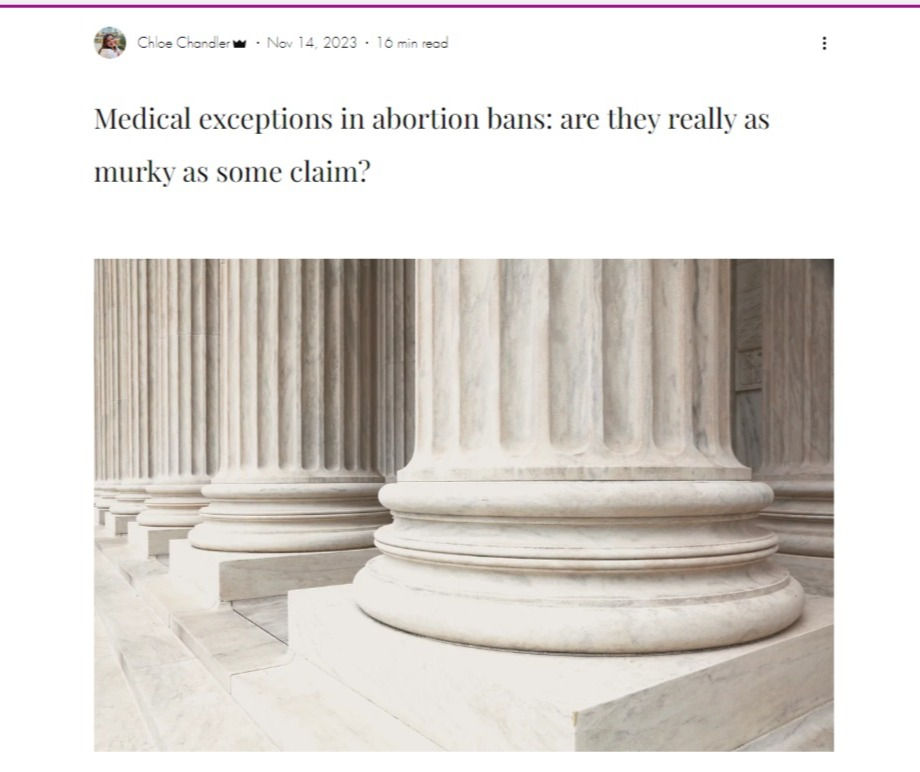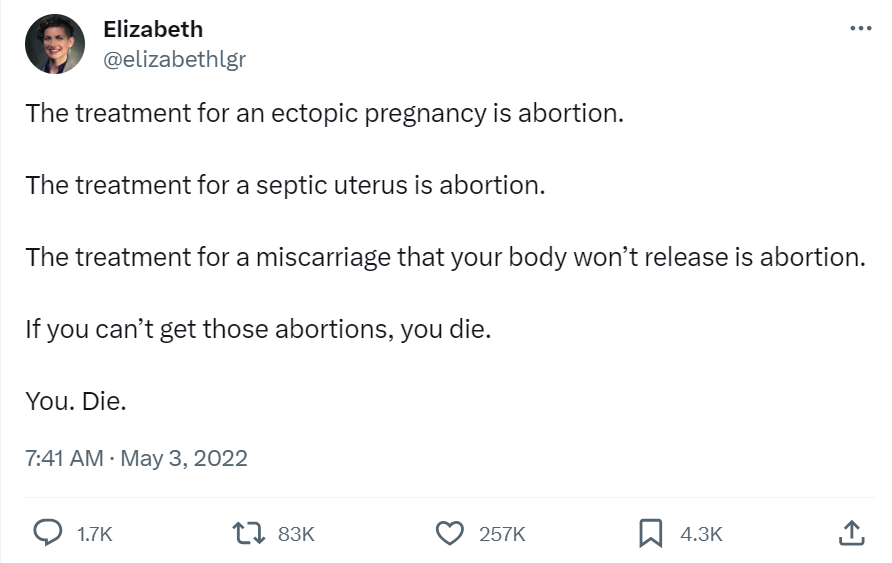In an election year, get the facts about medical exceptions to abortion
- Chloe Chandler

- Jan 3, 2024
- 3 min read
With a national election looming later this year, the issue of abortion is set to take center stage in national discourse. Prior to the midterms in 2022, Gallup reported that 42% of respondents said abortion would be "extremely important" when considering who to vote for (making it one of the top election issues, following only the economy). When the Supreme Court issued the ruling that overturned Roe v. Wade in 2022, it sparked heavy debate on both sides. Several states across the country had already passed laws meant to ban abortion immediately following such a ruling, and these laws soon became a point of heavy contention. Since that day, there have been claims that states with abortion bans also ban treatment for medical issues like ectopic pregnancy and incomplete miscarriage.
Now, it's 2024. As we enter campaign season with a national election on the horizon and abortion remaining a key wedge issue, it's as important as ever to cut through the clutter and get to the facts surrounding medical exceptions in abortion bans.
After a thorough reading of the laws in all 23 states that restrict abortion, one thing is clear: every state that bans abortion has an exception for medical emergencies. Any other statement is simply not true.
For example, my home state of Utah passed a law in 2020 that bans abortion from the moment of conception, except in limited circumstances. Judge Andrew Stone placed a temporary injunction on this law (known as SB 174) in summer 2023 until the State Supreme Court hands down their decision, so abortion is currently only banned after 18 weeks in Utah. However, SB 174 states explicitly that the state of Utah's definition of "abortion" does not include the removal of a dead preborn child or an ectopic pregnancy. Utah defines a medical emergency as "a condition which . . . so threatens the life of a pregnant woman as to necessitate the immediate abortion of her pregnancy to avert her death, or for which a delay will create a serious risk of substantial and irreversible impairment of major bodily function." This definition was reinforced when the legislature passed HB 467 in 2023.
Anti-abortion protestors in Texas. Sergio Flores/Getty Images
The laws in most other states contain similar language, though some add additional requirements for physicians who perform abortions under these circumstances. SB 8 in Texas is an example of this. This law bans abortion after a preborn child's heartbeat can be detected, but states that an abortion can be performed if a physician believes a medical emergency exists that necessitates it. In such situations, the physician must include written in the woman's medical record: (1) their belief that a medical emergency necessitated the abortion, and (2) the specific medical condition that the physician believes required an abortion. A copy of these notations must be preserved in the physician’s practice records.
Some states even include statements about protecting the unborn child. In Idaho, it is required for a physician who performs an abortion to do so "in the manner that . . . provide[s] the best opportunity for the unborn child to survive," unless terminating the pregnancy in such a manner would have caused the death of the pregnant woman.

Being informed and learning facts is the most important part of any debate. As this topic is one that I am particularly passionate about, I've done extensive research on it and have compiled a long-form analysis of each state's abortion ban. Find a review of each state's laws here: Medical exceptions in abortion bans: are they really as murky as some claim?










Comments